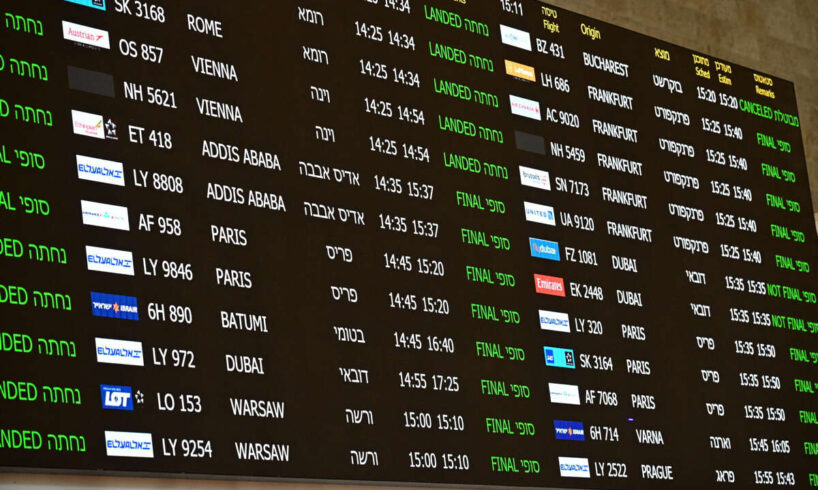
A startling 37% of Israeli youth anticipate relocating overseas in the near future, based on the 2025 Youth Situation Report published by the Aluma organization, which reveals troubling trends concerning young Israelis’ prospects. Among this group planning international moves, 26% contemplate temporary stays while 11% envision permanent departure. The permanent relocation rate climbs to 17% among Arab Israeli youth.
The Aluma organization’s findings paint a concerning portrait of employment instability, eroding confidence, and critical skill gaps affecting the emerging generation. When examining career outlook, merely 14% of respondents express certainty about their professional futures, with 42% maintaining cautious optimism and another 14% reporting persistent anxiety and stress. Arab youth demonstrate heightened concern, with 28% experiencing worry and pressure – approximately twice the overall average.
Israeli security forces and first responders gather at the site of an Iranian strike that hit a residential neighborhood in the Ramat Aviv area in Tel Aviv on June 22, 2025 (Jack GUEZ / AFP)
The ongoing wartime posture Israel has been in since Oct. 7, 2023 fundamentally disrupted employment patterns. Half of all working young people underwent career transitions during Operation Iron Swords, while 43% of university students experienced academic disruptions, including one-third who switched institutions or academic disciplines.
Employment concerns (52%), personal relationships, and economic independence represent the primary challenges facing today’s youth. Nevertheless, 17% of survey participants acknowledge feeling entirely unprepared for their futures, contrasting with just 40% who express readiness.
Professional skill development presents significant obstacles. Only 40% of young respondents believe they can readily develop essential “soft skills” including communication abilities, adaptability, and innovative thinking. Some 43% foresee substantial difficulties, while 17% doubt their potential success. Technology-related competencies present even steeper challenges – just one-third feel confident about acquiring these capabilities, with 23% expressing complete pessimism about their prospects.
An Iranian man rides a motorbike past a billboard showing various Iranians including military personnel and Iranian Foreign Minister Abbas Araghchi (3-R) saluting and a message reading ‘We all are soldiers of Iran’ (EPA/ABEDIN TAHERKENAREH)
Military reservists experienced the most profound impact. Twenty-seven percent of surveyed youth or their spouses completed at least 60 days of reserve duty since October 2023, with 64% suffering significant life disruption, primarily affecting emotional well-being (32%), professional circumstances (31%), and financial stability (29%).
Dr. Tami Chalmish Eisenman, Aluma organization CEO, emphasizes that “Israel’s rehabilitation hinges on young people feeling confident about their futures. Without immediate implementation of practical training programs and essential skill development initiatives, we face serious workforce deficits and intellectual emigration. This report represents an urgent call to action for our entire society.”
The Aluma organization annually engages with approximately 60,000 young people nationwide, focusing on creating equitable opportunities, reducing inter-community disparities, and facilitating successful workforce integration.





